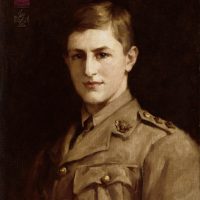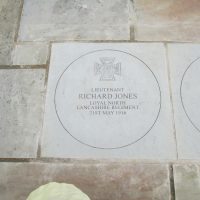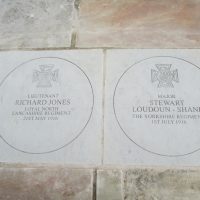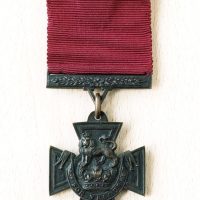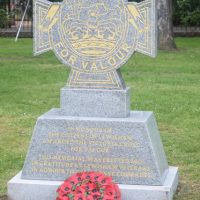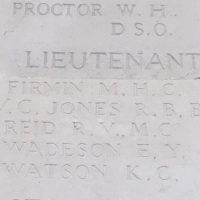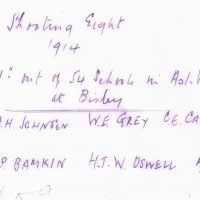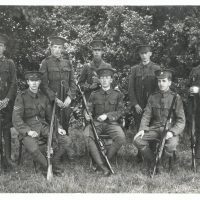Jones, RBB
(1897 - 1916)
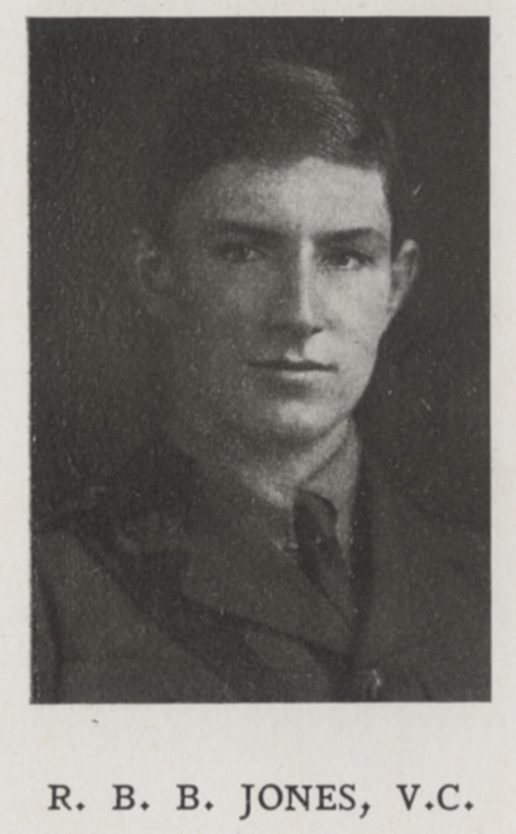
Key Facts
DATE OF BIRTH:
30th April 1897
YEARS ATTENDED THE COLLEGE:
1909 - 1914
HOME ADDRESS WHEN AT THE COLLEGE:
2 Thicket Road, Anerley, SE20
REGIMENT
8th Battalion, Loyal North Lancashire Regiment
FINAL RANK:
Lieutenant
DATE OF DEATH:
21st May 1916
AGE AT DEATH:
19
WHERE HE DIED (or was wounded)
Vimy Ridge
LOCATION OF GRAVE OR MEMORIAL:
Arras Memorial Bay 7
Lieutenant Richard Basil Brandram Jones
Born on April 30th 1897, Richard was the second child of Londoner Henry Jones and his wife, Caroline, who had originally been born in Ceylon. He joined the College in the summer of 1909 and was a Dulwich boy for the next five years. He was in the Shooting VIII in his final two years, 1913 and 1914, and in his final year of 1914 was also Captain of the Gymnastics VI.
Not long after Richard left Dulwich in the summer of 1914 came the declaration of war, and as a result he signed up for military service, despite being aged just 17, and was given a commission in the Loyal North Lancashire Regiment that October. He was sent to France for the first time in September 1915 and was appointed Sniping Officer for his battalion. That winter was spent in the trenches around Ploegsteert Wood and, by May 1916, he and his unit had been posted to the vicinity of Vimy Ridge. On the evening of May 21st he was charged with leading the defence of a recently captured crater against a significant German assault. His command remained immensely calm, and he cheered his men by keeping count of the number of enemy he shot. Having reached fifteen he eventually ran out of ammunition and was fatally shot through the head whilst attempting to throw a grenade. Although the remnants of the platoon were later forced to evacuate the crater, Richard’s bravery and calmness of command in a difficult situation would later receive the ultimate honour, as he was posthumously awarded the Victoria Cross for his actions that day. Two days beforehand his old school-friend Cecil Howard, a fellow officer in the 8th Battalion, had suffered what would ultimately prove to be fatal injuries in the capturing of the same crater; in their honour would later be founded the Howard-Jones Challenge Cup, a trophy awarded by the College for rifle shooting.
